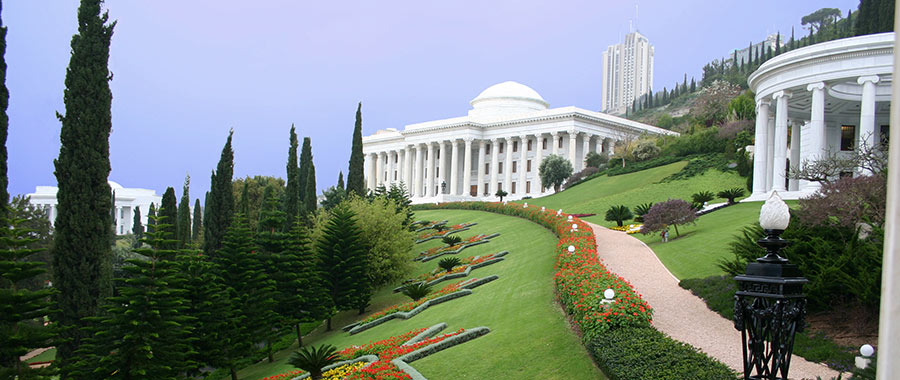Within the vast tapestry of religious systems, the Baha’i Faith emerges as a distinctive paradigm, particularly due to its innovative administrative structure and the profound philosophical underpinnings that prompted its genesis. The Baha’i administration, characterized by principles of unity, consultative governance, and an intrinsic connection to spiritual doctrines, represents not only a management framework but also a reflection of Baha’i teachings themselves.
The origins of the Baha’i administrative order can be traced back to the teachings of Baha’u’llah, the founder of the Baha’i Faith, whose writings emphasize the importance of order and governance as essential to the realization of a harmonious society. This ethos is encapsulated in the notion that spiritual understanding must manifest in practical, organizational forms. Thus, the Baha’i administrative system is not merely an administrative arrangement; it is an embodiment of the Faith’s core values.
Historical Context
To comprehend the remarkable genesis of the Baha’i administration, it is pivotal to explore the historical milieu surrounding Baha’u’llah’s life. Emerging in 19th-century Persia amidst various socio-political upheavals, the Baha’i Faith arose in opposition to oppressive regimes and sectarian divides. Baha’u’llah’s life was marked by exile, imprisonment, and profound challenges. However, it was against this backdrop of adversity that the principles of equality, justice, and communal unity began to take shape, setting the foundation for an administrative order that would later foster global cohesion among an increasingly dispersed following.
The Emergence of Administrative Principles
The administrative order of the Baha’i Faith is predicated on several key principles. One of these is the principle of consultative decision-making, which holds that every member of the community has a role and voice in shaping the direction of the Faith. This principle is indicative of a radical departure from traditional hierarchies, emphasizing collective engagement over individual dominance. Such a paradigm fosters a unique democratic ethos, wherein all contributions are valued, leading to enriched outcomes and the active participation of the community in governance.
Moreover, the Baha’i administration underscores the significance of unity in diversity. This core tenet posits that a localized and global community can coalesce around shared values while celebrating distinct identities. It is this amalgamation that cultivates a robust and resilient community, differentiating it from other religious movements that may adopt a more exclusionary posture. The Baha’i administrative framework thus serves as a microcosm of the universal ideals espoused by Baha’u’llah.
Institutional Framework
At the heart of the administrative structure lies a system composed of various institutions, both elected and appointed. The Universal House of Justice, the supreme governing body, plays a crucial role in upholding the tenets of the Faith and ensuring its body of teachings is applied judiciously across diverse contexts. Complementing this are local and national spiritual assemblies, which operate democratically and provide a platform for grassroots engagement and decision-making.
This tiered organizational structure is designed to facilitate both local responsiveness and global cohesion. While local assemblies address community-specific issues, the Universal House of Justice synthesizes these diverse local needs into a cohesive global vision. This duality not only reflects the unity of the Baha’i community but also serves to educate and empower its adherents in matters of governance and societal progress.
The Role of Spirituality in Governance
In exploring the Baha’i administrative order, it is essential to consider the interplay between spirituality and governance. Baha’u’llah posited that true leadership emerges from a foundation of spiritual virtues such as humility, empathy, and integrity. The expectation is that those engaged in the administration are not only adept in governance but are also spiritually enlightened individuals deeply attuned to the moral implications of their decisions. Thus, leadership is seen as a service to the community, a doctrine that cultivates a sense of responsibility and stewardship among its administrators.
This convergence of spiritual principles with administrative responsibilities engenders a culture of accountability. It fosters a sense of trust within the community, as members recognize that their leaders are rooted in a commitment to ethical governance rather than personal ambition. Such a culture magnifies the effectiveness of the administration, allowing it to navigate complex social dynamics with grace and adaptability.
Challenges and Resilience
No administrative system is without its challenges. The Baha’i administration has faced numerous adversities, including persecution in various regions of the world. Yet, it is in the face of such challenges that the resilience of the administrative order becomes apparent. The principles of consultation and unity have equipped Baha’is to confront external pressures while maintaining internal solidarity. This unwavering commitment to the foundational tenets of the Faith has allowed the Baha’i community to not only endure but to flourish despite adversity.
Looking Forward: The Future of Baha’i Administration
As the Baha’i community continues to expand globally, the principles underpinning its administration will require ongoing reflection and adaptation. The evolving socio-political landscape presents both opportunities and challenges that will necessitate innovative approaches to governance while remaining anchored in the teachings of Baha’u’llah. The interplay between tradition and modernity will shape the future trajectory of the Baha’i administration as it seeks to remain relevant and responsive to the needs of a diverse and expanding community.
In conclusion, the remarkable genesis of the Baha’i administration serves as a testament to the innovative spirit of the Baha’i Faith. Grounded in principles of unity, consultative governance, and a profound connection to spirituality, it is a system designed to uplift and empower individuals and communities alike. As this administrative order continues to evolve, it will undoubtedly play a pivotal role in furthering the aims of the Baha’i Faith and fostering a compassionate, just global society.
